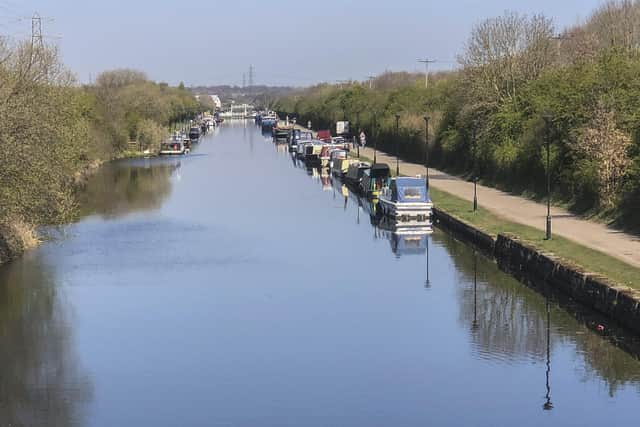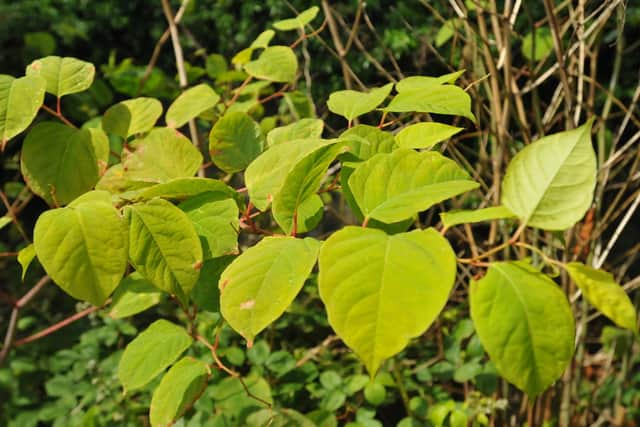Clean up of the Aire and Calder Navigation at Stanley Ferry near Wakefield to get underway tomorrow
and live on Freeview channel 276
Working in partnership with British Canoeing, Angling Trust, Environment Agency and Yorkshire Water, the charity will get onto the water to help clear pennywort in a canoe, kayak, or paddleboard.
Floating pennywort is an invasive non-native species from South America, introduced to the UK in the 1980s by the aquatic nursery trade. This fleshy-stemmed plant grows into floating mats of lush foliage across waterways.
Advertisement
Hide AdAdvertisement
Hide AdThis highly invasive plant is a real problem for inland waterways. It grows very rapidly in warmer summer months, up to 20cm per day, and is responsible for swamping waterways, blocking water flow, crowding out native plants and taking oxygen from fish and insects.


The charities are working with the Canal and River Trust to remove and limit the damage of invasive plants from Yorkshire’s inland waters with a 12-month project until spring 2024.
Environmental project officer Jake Crone from British Canoeing is coordinating the project.
He said: “Invasive non-native plants such as floating pennywort, giant hogweed, Japanese knotweed, and water fern (azolla) are thriving at the cost of our native plants and wildlife, blocking canals, rivers and other waterways.”
Advertisement
Hide AdAdvertisement
Hide Ad“With little to no native predators, many invasive plant species outcompete the native plants. As well as being experts at seed dispersal and vegetative reproduction, they travel by any means to get to a new location along a waterway.


"It’s a constant battle and we’ll be hosting a series of similar events over the summer, when these invasives are at their most problematic and prolific.”
Considered the second greatest threat to native plants and wildlife after habitat loss, invasive non-native species damage our natural ecosystems and can harm our health and interfere with activities we enjoy.
They can reduce water quality and habitat availability, having a huge impact on our waterways and the native wildlife that lives along them, and cause damage to historic structures, prevent navigation, and inhibit water control.
Advertisement
Hide AdAdvertisement
Hide AdThe Canal and River Trust spends around £700,000 every year tackling invasive plants across its 2,000-mile canal network in England & Wales, with the cost to the nation’s economy estimated at over £1.7 billion a year.
Philippa Baron, ecologist at Canal and River Trust, added: “Floating pennywort, like Japanese knotweed, can grow from miniscule fragments. It’s incredibly difficult and expensive to remove. We have to physically remove the plant from the water, often using machinery, which is expensive and time consuming.
“Canals and rivers are home to a huge variety of animal and plant life, and these delicate ecosystems need to be managed to ensure we have a healthy and diverse plant and wildlife population whilst also protecting our native species.
“Our charity spends a lot of time and money trying to tackle and stay on top of invasive plants along our canals and rivers. Hosting events like this, where the pennywort is pushed out of the water onto the banks by non-powered craft and with the support of volunteers, is a huge help.”
The clean up event takes place tomorrow from 10am until 3pm.
For more information on the work of Canal and River Trust, visit: www.canalrivertrust.org.uk